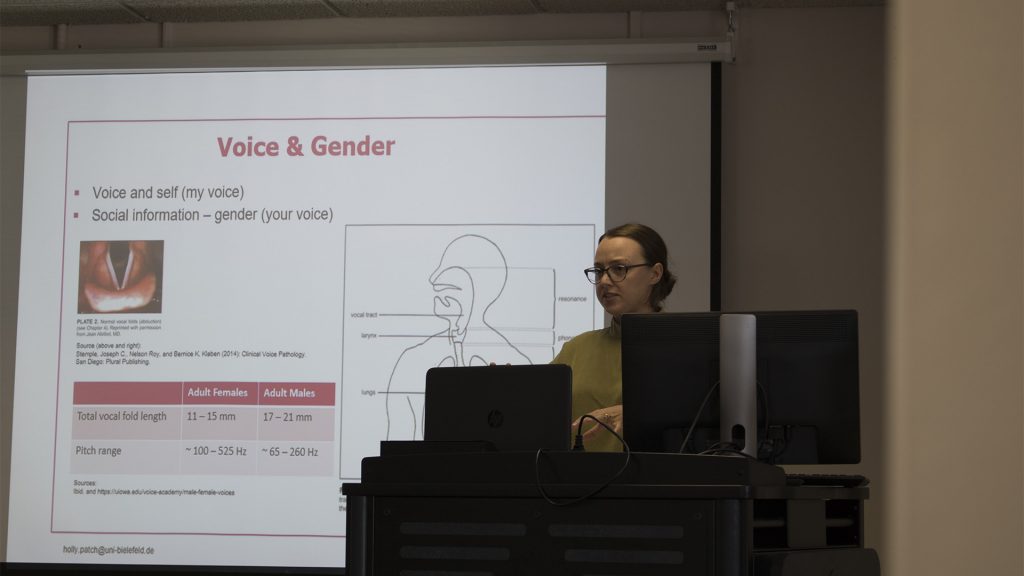An event Wednesday night discussed issues of gender and vocality at “Trans Vocality: Singing, Gender, and Joyful Politics,” hosted by University of Iowa graduate Holly Patch.
Patch graduated from the UI with degrees in gender, women, sexuality studies, and music in 2011. Her time and education led to a great deal of interest and the discussion of vocality in the transgender community.
The event centered on the special relationship between vocality and gender. Patch focused on the distinction between vocality and voice. Vocality allows for an intersubjective acoustic space that avoids dichotomous generalizations, Patch said.
“I hope that [participants] are going to think more about how they hear things … also how they’re hearing gender in general … I want to get them thinking more than anything,” Patch said.
She also discussed the power of the human vocality in its internal embodiment, covering the uniqueness of each individual’s vocality and how that ties to identity. The discussion was then directed specifically to the lives of transgender individuals.
RELATED: UI faculty and rape-prevention advocates host forum discussing #MeToo movement
Allison Holmes-Bendixen, a musical-theater teacher and participant in the study, noted the prominence of vocality.
“I learned so much … I was thinking about the way she was talking about experiencing vocality and finding authentic voice,” Holmes-Bendixen said. “And that spoke to me a lot as an instructor of voice.”
The event then focused on the art of opera in terms of vocality.
The distinctions among soprano, mezzo, tenor, and bass roles represent a long history of the gendering of voice, Patch said, noting the pioneers of transgender singing and how they challenge the binary roles of vocality.
Patch then discussed the transgender representation in choirs across the United States and how they tie to her study of trans vocality. Patch referenced the importance of these communities for the growth and acceptance surrounding transgender individuals.
Mary Ann Rasmussen, a senior lecturer in the UI English Department working in gender, women, and sexualality studies, listened to the presentation of her former student. She described Patch’s time at the university and the transformation that into a research study.
RELATED: What’s wrong with today’s masculinity?
“I encourage students to bring together things that they’ve been learning … and for Holly, it was music and gender, women, and sexuality studies,” Rasmussen said. “So she brought them together in this really brilliant way that involved performance and research on the gendering of opera.”
Patch concluded the discussion by addressing each individual’s experience with the individual’s vocality. By addressing the uniqueness of people’s identification and voice, there is room for growth and education of the transgender experience, Patch said.
The event touched on the importance of not making assumptions regarding one’s gender based on vocal cues.
“Knowing that I can understand the manuals of what the voice is doing physiologically, but that experience of what voice feels like and authenticity … is unique to the individual,” Holmes-Bendixen said.
The UI provided the groundwork for Patch’s study of the subject, and Patch referenced the importance and meaning that had.



